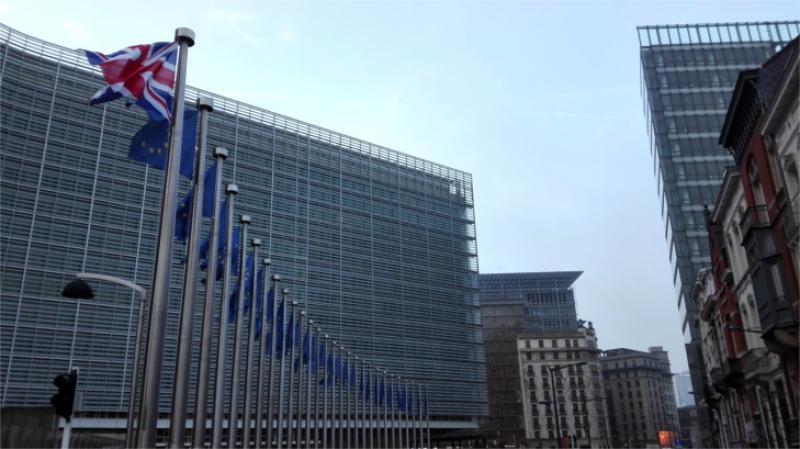
Brexit lobby meetings dominated by big business, official figures reveal
Finance, accountancy and fossil fuel companies dominate meetings held by UK’s Brexit and Trade departments
UK government accused of sidelining concerns of civil society by granting extremely privileged access to corporate lobbyists
Updated analysis released by Corporate Europe Observatory and Global Justice Now exposes how official lobby meetings about Brexit and post-Brexit trade are being dominated by big corporate interests at the expense of civil society.
As EU leaders start to gather in Brussels to agree on opening talks regarding post-Brexit transition and trade, the figures shine a light on the risk of Brexit being shaped by the concerns of big business, rather than those of the population as a whole.
The analysis of official statistics on lobby meetings with ministers from the UK’s Department for Exiting the EU (DExEU) and the Department for International Trade (DIT) between October 2016 and June 2017 reveals a shared willingness to meet the representatives of big corporations above all others. The analysis shows:
Department for Exiting the European Union (DExEU)
Finance sector and audit firms are prominent in the list of firms lobbying DExEU, with lobby organisation TheCityUK (8 meetings) and HSBC (7 meetings) near the top of the chart. Lloyds Bank, Goldman Sachs, Deloitte and PriceWaterhouseCoopers also all made the list (4 meetings each).
70% of all meetings held by DExEU ministers were with business representatives. This figure may even just be the tip of the iceberg, as Brexit lobby meetings are also likely to take place with DExEU officials not required to disclose meetings.
While representatives of the small-business sector, including the Federation of Small Business and the British Chambers of Commerce, feature among the list of the most frequent DExEU lobbyists, meetings with larger corporations are prominent in ministers’ diaries.
The Brexit secretary David Davis has met business representatives 29 times. However, he failed to even once meet groups representing those people most affected by Brexit – the over 4 million EU citizens in the UK and the British citizens living across the EU.
Department for International Trade
Over 90% of all meetings held by DIT ministers were with corporate lobbyists. Civil society organisations were included in just 3% of meetings
Financial sector and audit firms figure prominently on the list of top lobbyists of DIT ministers with HSBC (10 meetings) and PriceWaterhouseCoopers (10 meetings) topping the chart. Barclays, KPMG and Standard Life (6 meetings each) all make the list.
Oil and gas firms also made the top lobbyists’ list with BP (8 meetings) and Shell (6 meetings).
Other firms in the top lobbyists' list include Rolls Royce (10 meetings) and the pharmaceutical giant GlaxoSmithKline (6 meetings)
The full list of meetings highlights just how rarely citizens and civil society have been heard by the negotiators, despite the fact that Brexit will directly affect the everyday lives of all UK residents.
A similar pattern emerges at the EU level, with 72% of meetings of Chief Negotiator Michel Barnier and his taskforce held with corporate interest representatives, with the finance sector as well as the food / agriculture sector dominating.
The research also highlights the lack of lobby transparency around these meetings. Decision makers refuse to release participant lists, agendas, minutes and other documents from lobby meetings, making it impossible to know who exactly is in the room and which specific policy options are being discussed.
Corporate Europe Observatory’s transparency campaigner Vicky Cann said:
“Brexit will strongly affect people’s private and professional lives in the UK, so it is vital that the process is as transparent as possible and that many different interests are consulted.
“But we observe a clear corporate dominance in the lobby meetings of the UK Brexit negotiators. And this pattern is replicated by EU negotiators as well. Civil society has had far less face-time with ministers and negotiators to voice the public’s needs, concerns, and proposals around Brexit.”
Alex Scrivener, a campaigner at Global Justice Now, added:
“The corporate bias that has been exposed in this list of meetings shows that we are veering dangerously towards a ‘big business Brexit’ that ignores the wider needs of UK society. Unless there is some sense of transparency and accountability in this process, there is every chance that the UK government will use Brexit as an opportunity to do away with existing, albeit imperfect, protections relating to labour rights, consumer standards and the environment.
“The fact that David Davis has found time to meet business representatives 29 times since October 2016 but has not once met with citizens’ rights advocates for EU citizens in the UK and British people in Europe is shocking and shows that this government has its priorities totally wrong on Brexit.”
Contact:
Corporate Europe Observatory, Vicky Cann, vicky@corporateeurope.org, +32 (0)2 893 0930
Global Justice Now, Alex Scrivener, alex.scrivener@globaljustice.org.uk, +44 (0) 20 7711 875345
Notes to editors:
Background briefing available: https://corporateeurope.org/power-lobbies/2017/12/big-business-brexit-co...
The list of top lobbyists of DexEU ministers is:
CBI
9
TheCityUK
8
HSBC
7
RIBA
7
Institute of Directors
5
Arup
4
British Chambers of Commerce
4
COBCOE
4
Deloitte
4
EEF
4
Facebook
4
Goldman Sachs
4
Lloyds Bank
4
PWC
4
Rolls Royce
4
SMMT
4
TechUK
4
The list of top lobbyists of DIT ministers is:
HSBC
10
Rolls Royce
10
PriceWaterhouseCoopers
10
BP
8
CBI
7
Barclays
6
BT
6
Shell
6
UK-India Business Council
6
KPMG
6
Standard Life
6
GlaxoSmithKline
6
